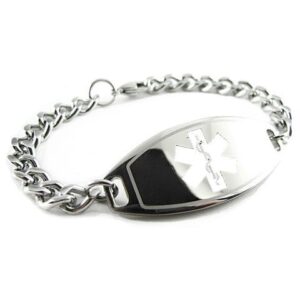As couples age together, staying connected and ensuring safety become increasingly important priorities. Medical alerts for couples have gained popularity as a practical way to provide peace of mind, especially for those with health concerns or mobility challenges. These systems can be a lifeline during emergencies, helping partners respond quickly when it matters most. Whether you’re managing chronic conditions or simply want added reassurance, understanding the essentials of medical alert systems can make a meaningful difference.
In this guide, we’ll explore everything you need to know about medical alerts for couples, from how they work to the features to look for. You’ll find practical advice, real-world examples, and tips to choose the right system for your unique needs. Making an informed decision can help you and your partner enjoy greater independence while ensuring help is always just a button press away.
Understanding Medical Alerts for Couples
What Are Medical Alert Systems?
Medical alert systems are devices designed to notify caregivers, family members, or emergency services when a user needs assistance. They often include wearable devices such as pendants or wristbands equipped with a button to summon help at any moment. These systems can be life-saving in situations like falls, sudden medical episodes, or accidents.
For couples managing health concerns or aging in place, these devices provide a safety net. They allow one partner to alert the other or emergency services quickly, reducing response times and potentially preventing serious consequences. Modern medical alerts often include features like GPS tracking, two-way communication, and fall detection, increasing their effectiveness and ease of use.
Key Features of Medical Alerts for Couples
Essential Features to Consider
- Fall detection technology: Automatically alerts help if a fall occurs, even if the user can’t press the button.
- Two-way voice communication: Allows direct conversation with emergency responders or loved ones through the device.
- GPS tracking: Provides location information, especially useful if help needs to be sent outdoors or in large areas.
- Long battery life and reliability: Ensures the system is functional when needed without frequent recharging.
- Ease of use: Simple, straightforward operation is critical, especially for seniors or those with cognitive impairments.
Choosing a system with these features can significantly enhance safety and give couples confidence in handling emergency situations effectively.
Benefits of Using Medical Alerts as a Couple
Peace of Mind and Increased Independence
Knowing that help is just a button away offers peace of mind for both partners. It allows couples to maintain independence while feeling secure that aid can arrive promptly if needed. This sense of security encourages seniors to stay active and engaged, which is vital for mental and physical health.
Improved Emergency Response
In emergencies, every second counts. Medical alert systems enable rapid assistance, potentially reducing the severity of injuries or medical complications. Having a system that both partners can use ensures that help can be summoned quickly, regardless of who is in trouble.
How to Choose the Best Medical Alert System for Couples
Assess Your Specific Needs
Start by considering the health status and lifestyle of you and your partner. Do you need a system with fall detection? Are outdoor activities common? Do you prefer a device with GPS tracking? Clarifying your priorities will guide your selection process.
Compare Features and Costs
System features vary widely, as do subscription fees. Some providers offer all-in-one packages, while others allow customization. For example, SampleBoard provides options with fall detection, GPS, and two-way communication, making it a good resource for comparison shopping.
Consider Connectivity and Support
Reliable connectivity is essential. Check coverage areas, especially if you spend time outdoors or travel. Additionally, review customer support responsiveness and user reviews to ensure assistance is available when needed.
Practical Tips for Using Medical Alerts Effectively
- Keep devices charged and accessible: Make it a routine to check battery status and keep devices on persons at all times.
- Educate both partners on system use: Understand how to activate features, respond to alerts, and troubleshoot common issues.
- Create a plan with emergency contacts: Know who to call and how the system communicates during a crisis.
- Test the system regularly: Conduct periodic tests to ensure the system and features like fall detection work properly.
- Communicate with your support network: Inform family, neighbors, or caregivers about your alert system and procedures.
Real-Life Examples of Couples Benefiting from Medical Alerts
Many couples report increased peace of mind after implementing medical alert systems. For instance, an elderly couple in Florida shared how having wearable devices with GPS allowed them to explore local parks without fear, knowing they could summon help quickly if needed. Similarly, a couple managing Parkinson’s disease credited their system for enabling daily independence while ensuring prompt assistance during unpredictable episodes.
Final Thoughts and Next Steps
Choosing the right medical alert system as a couple involves understanding your specific needs, weighing available features, and establishing clear procedures for emergencies. Remember that technology is only part of the safety picture; regular communication and planning are equally vital. Investing in a reliable system can transform your approach to health and safety, allowing you and your partner to focus more on enjoying each other’s company without constant worry.
If you’re ready to explore options and find a system that fits your lifestyle, consider checking out providers like SampleBoard. Making this choice today can provide reassurance and security for many moments ahead. Don’t wait to take that step toward safer, more confident living together.






